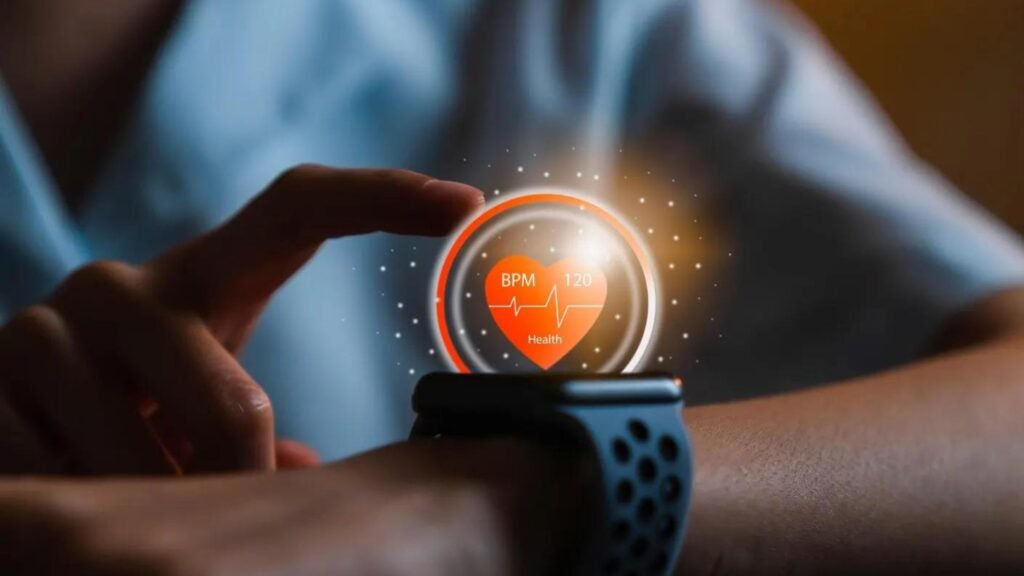How Wearable Technology is Changing Fitness and Health
Wearable technology is revolutionizing fitness and health by providing real-time data, personalized insights, and enhanced connectivity. Here’s an in-depth look at how these innovations are transforming the industry:
Real-Time Health Monitoring
Fitness Tracking
Wearable devices like fitness trackers and smartwatches monitor various physical activities, including steps taken, distance traveled, and calories burned. These devices help users set fitness goals, track their progress, and stay motivated by providing immediate feedback on their activity levels. The convenience of having these metrics readily available encourages a more active lifestyle and better fitness habits.
Heart Rate Monitoring
Many wearables come equipped with heart rate monitors that provide continuous heart rate tracking. This feature is crucial for understanding cardiovascular health, optimizing workout intensity, and ensuring safety during exercise. For instance, athletes can use heart rate data to stay within their optimal training zones, while individuals with health concerns can monitor for irregularities that may require medical attention.
Personalized Health Insights
Sleep Analysis
Wearable technology offers advanced sleep tracking capabilities, analyzing sleep patterns and providing insights into sleep quality. Devices track metrics such as duration, deep sleep, REM sleep, and interruptions. These insights help users understand their sleep behavior and make necessary adjustments to improve sleep hygiene, which is essential for overall health and well-being.
Nutrition and Hydration Tracking
Some wearables are integrated with apps that allow users to log their food and water intake. By monitoring nutritional habits and hydration levels, users can receive personalized recommendations to maintain a balanced diet and stay properly hydrated. This feature supports weight management, fitness performance, and general health.

Enhanced Connectivity and Motivation
Social Integration
Wearable devices often feature social integration, allowing users to connect with friends, join fitness challenges, and share achievements on social media. This connectivity fosters a sense of community and competition, motivating users to stay active and engaged in their fitness journeys. Social features also provide support and encouragement, which can be particularly beneficial for those looking to maintain long-term health and fitness goals.
Personal Coaching
Many wearables offer personalized coaching through connected apps, providing tailored workout plans, nutrition advice, and health tips. These virtual coaches use data collected from the wearables to offer insights and recommendations that are specific to the user’s needs and goals. This personalized guidance can be as effective as having a personal trainer, helping users achieve their health objectives more efficiently.
Proactive Health Management
Chronic Disease Management
Wearable technology plays a significant role in managing chronic diseases such as diabetes, hypertension, and respiratory conditions. Devices can monitor vital signs, track medication adherence, and alert users to potential health issues. For example, a wearable might monitor blood glucose levels and notify a diabetic user of any significant changes, allowing for timely intervention.
Emergency Alerts
Many wearables are equipped with emergency alert features that can detect falls or other emergencies and automatically notify designated contacts or emergency services. This capability is particularly valuable for elderly individuals or those with medical conditions, providing an extra layer of safety and peace of mind.
Future Trends in Wearable Technology
Advanced Biometrics
The future of wearable technology will see advancements in biometric tracking, including more accurate measurements of blood pressure, blood oxygen levels, and even electrocardiogram (ECG) readings. These enhancements will provide deeper insights into health and enable more precise monitoring of various conditions.
Integration with Healthcare Systems
Wearables will increasingly integrate with healthcare systems, allowing for seamless sharing of data between patients and healthcare providers. This integration will facilitate more comprehensive health monitoring, enable remote consultations, and support personalized treatment plans. By providing doctors with continuous health data, wearables can help in early diagnosis and more effective management of health conditions.
AI and Machine Learning
Artificial intelligence (AI) and machine learning will play a pivotal role in the evolution of wearable technology. These technologies will enable wearables to analyze vast amounts of data and provide more accurate predictions and recommendations. For instance, AI could predict potential health issues before they become serious, based on patterns detected in the user’s data.
Conclusion
Wearable technology is transforming the fitness and health landscape by offering real-time monitoring, personalized insights, and enhanced connectivity. These devices empower users to take control of their health, stay motivated, and make informed decisions about their well-being. As technology continues to advance, wearables will become even more integral to our daily lives, offering new ways to improve fitness, manage health conditions, and enhance overall quality of life.



